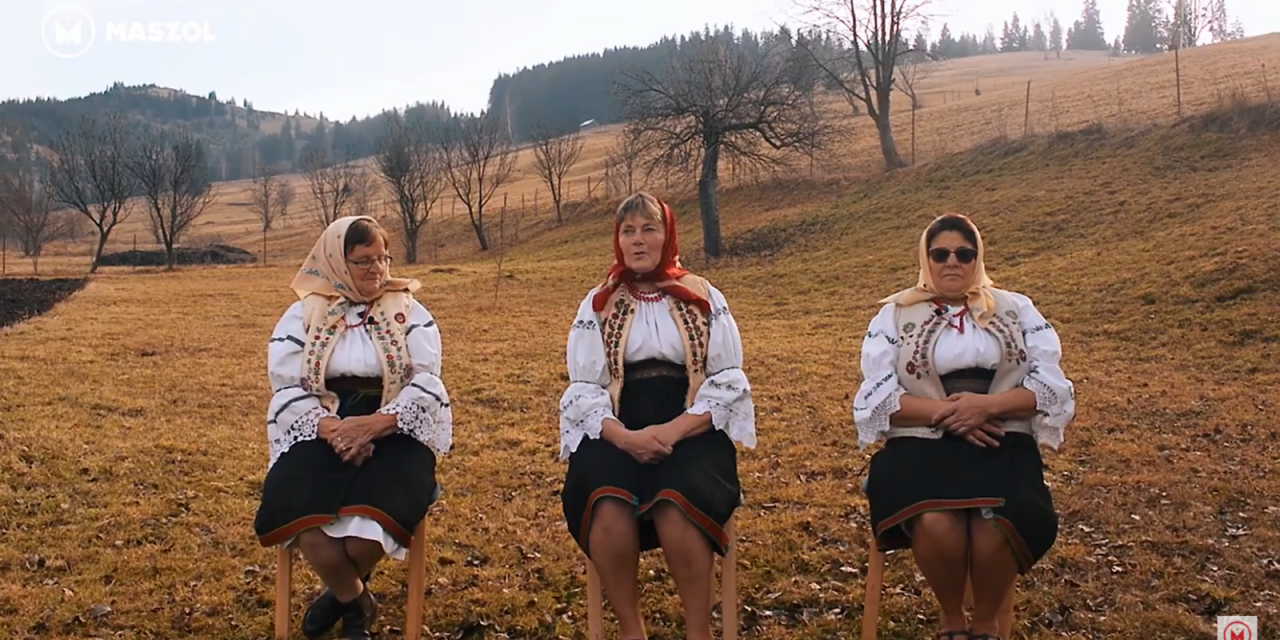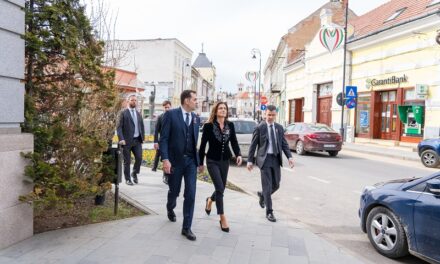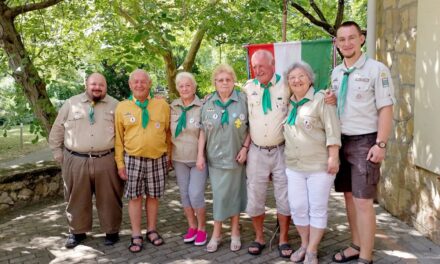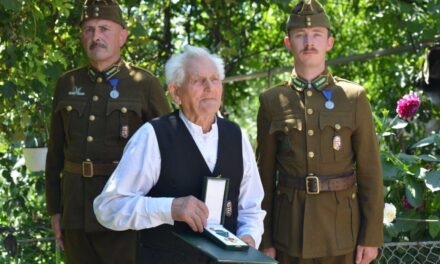The Gábor sisters talk about past Christmases and the modern celebration, and as an encore, they also presented us with Christmas carols.
"We were waiting for the angel, and I saw it: the door was open, she came in a white sheet, but one of her eyes was peeking out. When I saw him, I screamed as much as I could. It was only a moment, but I noticed that he was wearing good boots. My grandmother told me to make the cross quickly and pray. I threw it with both hands and started: come, Jesus, be our guest... I must have been three years old. When they asked afterwards if I had seen the angel and what he was like, I told everyone that he had one eye and good boots!"
– the humorous Christmas story was told at the Gyimesfelsőlok gate.
They talked with the Gábor sisters about past Christmases and the modern celebration, and as an encore, they also presented us with Christmas carols.
In the weeks before Christmas, we knocked on the door of the Gábor sisters, and our hours spent there were not dressed up as festive by snowfall. The intimacy of the conversations is all the more: the three sisters told humorously and openly about the Christmases of the past - often poor and full of constraints - and about the rich, ornate, glittering holidays of today. In the meantime, they entertained us: they put homemade bread, bacon, sausage and zakuska in front of us, because they learned from their mother that "the wanderer should be well fed". While we were snacking, we brought out the many family albums and remembered the many happy and sad stories related to them.
The oldest sister is Eszter Gábor Tankó Jánosné, followed by Annamária Gábor and then Julianna Gábor. As we learned, the two younger ones live in the family house, tending the house, garden, land and animals without male help, and the older one lives a few houses away from them. Thus, family cohesion is natural for them, and they have hidden the seed of togetherness in the hearts of their children, grandchildren and great-grandchildren. Not with strictness or coercion - they told me with sparkling eyes - but by example, because they had already learned from their parents that family, faith and joy are the most important things in life. That is why Advent does not pass without a prayerful spirit, just as Christmas does not pass without closeness, songs and joy.
But the joy around their house is not measured in physical possessions: since they could expect very little in the way of gifts in their childhood, they learned that Christmas is about time spent together, which the family members can celebrate with songs, poems and games.
According to their memories, the angel dropped nuts and apples under the tree, if they managed to get to the pine tree at all, yet they felt unclouded happiness at that time. They tried to pass on this unconditional joy to their children, and they feel that they succeeded, because the large family often gets together, and even the smallest ones are excited to be able to do activities together with their old and young family members.
They said that they had a Christmas tree every year, even when during communism it was forbidden to purchase pine trees and militiamen harassed families looking for Christmas trees.
Their father's common sense and cunning as a peasant showed itself in this situation as well: if a pine tree could not be brought into the house, he collected pine branches, entwined them as a wreath, and decorated it with his family. They were not dissuaded by the restrained decoration, because "it wasn't a rich holiday, but it was intimate", and they couldn't have asked for more. Although they didn't have a radio, telephone or television, electricity was introduced to their house late, but they still had a lot of fun during the long winter evenings: their father played the zither and the flute, and the female members of the family sang and occasionally played the piano.
"At that time, people also visited each other: they sang at the door, greeted each other, but nowadays everything is dead"
- added the eldest, emphasizing that at that time the nativity scene was also forbidden, but despite the restrictions, a community of adults got together and took the village by the shoulders to entertain its residents with the csangó version.
They dressed in self-made masks, disguised themselves as angels, three kings, Mary and Joseph, and went from house to house singing. The middle brother admitted, "there were children in the darkest years of communism, but it was still a holiday in their home. An intimate, loving celebration, which was completed by attending Mass".
"The Christmases were nice. They are still very precious now, but it's so good to remember when we celebrated with our parents and siblings".
Since "the three of them are for each other", they appreciate that they can spend the fateful events together to this day: on New Year's Eve, for example, they celebrate as a trio, and on Sundays they have lunch together. As we found out, the age difference between the oldest and youngest girl is 19 years, the older sister gave birth to her own children earlier than her mother gave birth to her younger sister.
They believe that the intimacy of the holiday depends on the family, it is also influenced by the level of love in the family, but it also depends on faith. "He who has faith also has intimacy and kindness. But those who don't believe in anything are indifferent to the holiday." This is also why they are happy that they were able to grow up in Gyimesek, which, thanks to its isolation, lives its traditions and faith more strongly.
Source and featured image: Maszol













